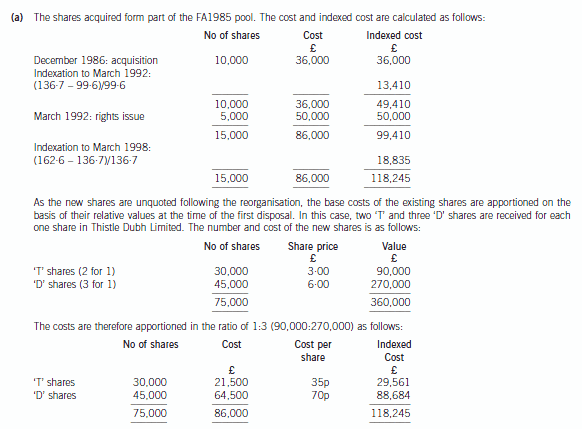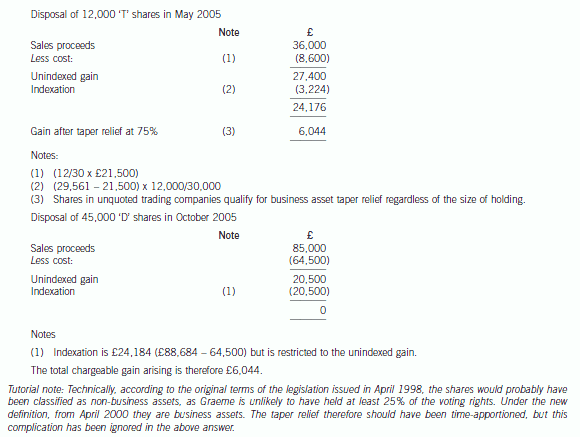2021年江苏省ACCA考试成绩查询时间
发布时间:2021-04-04
江苏的考生们,大家期待已久的ACCA考试成绩查询时间来啦,跟着51题库考试学习网一起先来了解吧。
2021年ACCA考试成绩公布时间:2021年4月12日,在此分享几点成绩查询后考生们比较关注的几点事项,以便大家查阅!
ACCA考试成绩合格标准:ACCA考试每科满分为100分,50分合格。ACCA考试不会控制一定的考试通过率,因此每门考试只要满足50分及以上即算作通过考试。
ACCA证书申请:
1、通过ACCA专业资格大纲13门课程的考试(其中9门根据学员的教育和专业背景可申请不同程度的免试);
2、完成职业道德与专业技能模块(EPSM);
3、至少三年的相关工作经验。
ACCA证书申请流程:
1、 符合会员的必要条件”3E”的准会员可以填写《ACCA会员申请表》。《ACCA会员申请表》可以直接登陆ACCA网站下载。对于暂时未满足会员的必要条件的准会员,可以在条件满足的任何时间向ACCA递交ACCA会员申请表;
2、 ACCA总部将对会员申请材料进行审核,完全符合条件者将被批准成为ACCA会员,并会收到ACCA英国总部颁发的ACCA会员证书。一般这个过程需要两个月的时间;成为会员约五年后,经申请和资格审查,可以成为资深会员(FCCA)。
3、 ACCA每年2月份和8月份会分别公布上一年12月份和本年6月份的考试成绩。每一个通过ACCA全部考试的学员随后会收到ACCA英国总部颁发的ACCA准会员证书,以确认学员成功通过所有考试。(一般收到时间是3月初和9月初)。
ACCA官方公布的以下情况下之一者,可以申请复议:
(1)参加了考试,并提交了答卷,却通知缺席考试;
(2)缺席考试,却收到考试成绩;
(3)对考试成绩有异议。
如果符合以上情况之一,ACCA学员必须在考试成绩发布日后的15个工作日内提出查卷申请。如果成绩有误,会在下次报考截止日期前收到改正后的成绩。
ACCA继续教育:为保持并更新专业知识和技能,ACCA要求所有会员必须每年参加累计不少于40学时的继续教育。
以上就是51题库考试学习网给大家分享的全部内容,希望能够帮到大家!后续请大家持续关注51题库考试学习网,51题库考试学习网将会为大家持续更新最新、最热的考试资讯!
下面小编为大家准备了 ACCA考试 的相关考题,供大家学习参考。
(b) Comment on the need for ethical guidance for accountants on money laundering. (4 marks)
(b) Need for ethical guidance
■ Accountants (firms and individuals) working in a country that criminalises money laundering are required to comply with
anti-money laundering legislation and failure to do so can lead to severe penalties. Guidance is needed because:
– legal requirements are onerous;
– money laundering is widely defined; and
– accountants may otherwise be used, unwittingly, to launder criminal funds.
■ Accountants need ethical guidance on matters where there is conflict between legal responsibilities and professional
responsibilities. In particular, professional accountants are bound by a duty of confidentiality to their clients. Guidance
is needed to explain:
– how statutory provisions give protection against criminal action for members in respect of their confidentiality
requirements;
– when client confidentiality over-ride provisions are available.
■ Further guidance is needed to explain the interaction between accountants’ responsibilities to report money laundering
offences and other reporting responsibilities, for example:
– reporting to regulators;
– auditor’s reports on financial statements (ISA 700);
– reports to those charged with governance (ISA 260);
– reporting misconduct by members of the same body.
■ Professional accountants are required to communicate with each other when there is a change in professional
appointment (i.e. ‘professional etiquette’). Additional ethical guidance is needed on how to respond to a ‘clearance’ letter
where a report of suspicion has been made (or is being contemplated) in respect of the client in question.
Tutorial note: Although the term ‘professional clearance’ is widely used, remember that there is no ‘clearance’ that the
incumbent accountant can give or withhold.
■ Ethical guidance is needed to make accountants working in countries that do not criminalise money laundering aware
of how anti-money laundering legislation may nevertheless affect them. Such accountants may commit an offence if,
for example, they conduct limited assignments or have meetings in a country having anti-money laundering legislation
(e.g. UK, Ireland, Singapore, Australia and the United States).
5 (a) IFAC’s ‘Code of Ethics for Professional Accountants’ is divided into three parts:
Part A – Applicable to All Professional Accountants
Part B – Applicable to Professional Accountants in Public Practice
Part C – Applicable to Employed Professional Accountants
Required:
Distinguish between ‘Professional Accountants’, ‘Professional Accountants in Public Practice’ and ‘Employed
Professional Accountants’. (3 marks)
5 BOLEYN & CO
(a) Professional Accountants
■ Professional Accountants are members of an IFAC member body. They may be:
– in public practice or employed professionals;
– a sole practitioner, partnership or corporate body.
■ Professional Accountants in Public Practice (‘practitioners’) are:
– each partner (or person occupying a position similar to that of a partner); and
– each employee in a practice providing professional services to a client irrespective of their functional classification
(e.g. audit, tax or consulting); and
– professional accountants in a practice having managerial responsibilities.
This term is also used to refer to a firm of professional accountants in public practice.
■ Employed Professional Accountants are professional accountants employed in industry, commerce, the public sector or
education.
(d) Briefly describe the principal audit work to be performed in respect of the carrying amount of the following
items in the balance sheet:
(i) trade receivables; and (3 marks)
(d) Principal audit work
(i) Trade receivables
■ Review of agreements to determine the volume rebates terms. For example,
– the % discounts;
– the volumes to which they apply;
– the period over which they accumulate;
– settlement method (e.g. by credit note or other off-set or repayment).
■ Direct positive confirmation of a value-weighted sample of balances (i.e. larger amounts) to identify potential
overstatement (e.g. due to discounts earned not being awarded).
■ Monitoring of after-date cash receipts and matching against amounts due as shortfalls may indicate disputed
amounts.
■ Review of after-date credit notes to ensure adequate allowance (accrual) is made for discounts earned in the year
to 30 June 2006.
■ Credit risk analysis of individually significant balances and assessment of impairment losses (where carrying value
is less than the present value of the estimated cash flows discounted at the effective interest rate).
2 Graeme, aged 57, is married to Catherine, aged 58. They work as medical consultants, and both are higher rate
taxpayers. Barry, their son, is aged 32. Graeme, Catherine and Barry are all UK resident, ordinarily resident and
domiciled. Graeme has come to you for some tax advice.
Graeme has invested in shares for some time, in particular shares in Thistle Dubh Limited. He informs you of the
following transactions in Thistle Dubh Limited shares:
(i) In December 1986, on the death of his grandmother, he inherited 10,000 £1 ordinary shares in Thistle Dubh
Limited, an unquoted UK trading company providing food supplies for sporting events. The probate value of the
shares was 360p per share.
(ii) In March 1992, he took up a rights issue, buying one share for every two held. The price paid for the rights
shares was £10 per share.
(iii) In October 1999, the company underwent a reorganisation, and the ordinary shares were split into two new
classes of ordinary share – ‘T’ shares and ‘D’ shares, each with differing rights. Graeme received two ‘T’ and three
‘D’ shares for each original Thistle Dubh Limited share held. The market values for the ‘T’ shares and the ‘D’
shares on the date of reorganisation were 135p and 405p per share respectively.
(iv) On 1 May 2005, Graeme sold 12,000 ‘T’ shares. The market values for the ‘T’ shares and the ‘D’ shares on that
day were 300p and 600p per share respectively.
(v) In October 2005, Graeme sold all of his ‘D’ shares for £85,000.
(vi) The current market value of ‘T’ shares is 384p per share. The shares remain unquoted.
Graeme and Catherine have owned a holiday cottage in a remote part of the UK for many years. In recent years, they
have used the property infrequently, as they have taken their holidays abroad and the cottage has been let out as
furnished holiday accommodation.
Graeme and Catherine are now considering selling the UK country cottage and purchasing a holiday villa abroad.
Initially they plan to let this villa out on a furnished basis, but following their anticipated retirement, would expect to
occupy the property for a significant part of the year themselves, possibly moving to live in the villa permanently.
Required:
(a) Calculate the total chargeable gains arising on Graeme’s disposals of ‘T’ and ‘D’ ordinary shares in May and
October 2005 respectively. (7 marks)


声明:本文内容由互联网用户自发贡献自行上传,本网站不拥有所有权,未作人工编辑处理,也不承担相关法律责任。如果您发现有涉嫌版权的内容,欢迎发送邮件至:contact@51tk.com 进行举报,并提供相关证据,工作人员会在5个工作日内联系你,一经查实,本站将立刻删除涉嫌侵权内容。
- 2020-10-19
- 2020-10-19
- 2019-03-20
- 2021-01-06
- 2020-08-12
- 2019-03-20
- 2020-09-05
- 2021-04-07
- 2020-10-18
- 2020-01-10
- 2020-09-05
- 2021-04-07
- 2020-10-19
- 2021-04-04
- 2019-01-05
- 2020-01-10
- 2021-01-06
- 2020-09-05
- 2020-09-05
- 2020-09-05
- 2020-12-24
- 2020-09-05
- 2019-01-05
- 2020-01-10
- 2020-09-05
- 2020-09-05
- 2019-03-20
- 2020-01-10
- 2021-04-04
- 2020-08-12